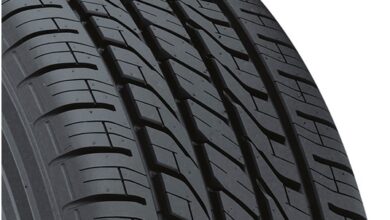Court Affirms California’s Ability to Establish Industry-Leading Vehicle Emission Standards

California Retains Authority to Set Leading Vehicle Emissions Standards, Court Rules
A federal court upheld California’s ability to establish its own pioneering vehicle emissions standards on Tuesday, affirming a key environmental prerogative reinstated by the Biden administration in its reversal of Trump-era environmental policy shifts.
The U.S. Court of Appeals for the District of Columbia Circuit dismissed efforts by Ohio, Alabama, Texas, and other Republican-led states to strip California of its authority to implement standards stricter than those set by the federal government. The court concluded that the states failed to demonstrate how California’s emissions standards would disproportionately inflate costs for gas-powered vehicles in their respective jurisdictions.
Governor Gavin Newsom, a Democrat known for championing California’s climate leadership, hailed the court’s decision as a validation of the state’s commitment to combatting the adverse health and environmental effects of vehicle emissions. He emphasized California’s ongoing transition toward cleaner transportation alternatives and its success in achieving environmental objectives ahead of schedule.
Newsom stated, “The clean vehicle transition is already here – it’s where the industry is going, the major automakers support our standards, and California is hitting our goals years ahead of schedule.” He reaffirmed California’s resolve to safeguard communities from pollution and address the climate crisis.
The court’s ruling carries significant implications for environmental policy, particularly amid the looming presidential election, which could shape the trajectory of regulatory measures both in California and nationwide. Former President Donald Trump’s administration had rescinded California’s authority to enforce its own emissions standards in 2019, a decision subsequently reversed by President Biden. Biden has pledged ambitious targets for zero-emission vehicles, aiming for them to comprise half of all new car and truck sales in the U.S. by 2030.
Ohio spearheaded a coalition of states in 2022 seeking to block California’s enforcement of its vehicle emissions standards, arguing that it encroached upon federal authority and violated the U.S. Constitution. However, the court’s decision rebuffed these contentions.
California’s history of setting stringent vehicle emission regulations stretches back decades, with the state regularly obtaining waivers from the U.S. Environmental Protection Agency to establish its own standards. These regulations, designed to address the state’s unique air quality challenges stemming from its sizable vehicle fleet, serve as a model for other states seeking to adopt more stringent emissions rules.
Ann Carlson, an environmental law professor at UCLA School of Law, noted that challenges to California’s authority over vehicle emissions standards have persisted since the early 2000s. Carlson highlighted California’s pivotal role in driving national progress on emissions regulations, emphasizing its influence on federal policy when successful standards prove effective and economical.
California’s aspirations for emission reductions extend beyond vehicles, with proposals to ban the sale of new gas-powered cars by 2035 and regulations targeting emissions from lawn equipment, trucks, and trains. Major automakers, including Ford, Honda, and Volkswagen, have committed to adhering to California’s vehicle emission standards, underscoring the state’s influential role in shaping the future of transportation policy.



